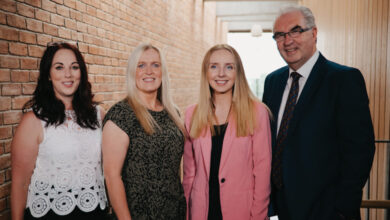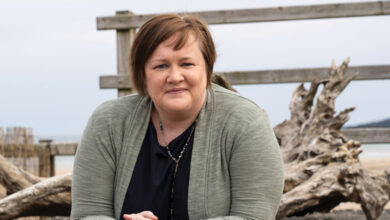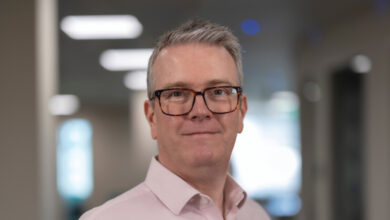The all-party group (APG) on social enterprise has been re-established following the Northern Ireland Assembly elections in May 2022.
Without a functioning Executive, Stormont is unable to conduct its usual business in the chamber or at committee level, thus increasing the relative importance of APGs.
11 MLAs have signed up as member of the Social Enterprise APG. Six of them are from the Alliance Party, one is from Sinn Féin, two are from the Ulster Unionist Party, and two are from the Democratic Unionist Party.
Five of the members were also members at the end of the last mandate of the Assembly. These members are: Stewart Dickson MLA (chair), John Stewart MLA, Kellie Armstrong MLA, Andy Allen MLA and Mike Nesbitt MLA.
Six members who served at the end of the last term will not be returning: Michelle McIlveen MLA, Rachel Woods, Robbie Butler MLA, Pat Catney, Harry Harvey MLA, and Chris Lyttle.
|
 Stewart Dickson MLA Stewart Dickson MLA
(Returning member)
Party: Alliance Party
Constituency: East Antrim
Role: Chair
About: First entered politics in 1977, when he was elected to Carrickfergus Borough Council. He was elected to the Northern Ireland Assembly in 2011, and has since been re-elected three times. In addition to his duties as an MLA, Dickson is a trustee of OG Cancer NI; an Honorary Treasurer of the Northern Ireland Association Winston Churchill Fellows; and a trustee of the Greenisland War Memorial Sports Club.
|
 Peter McReynolds MLA Peter McReynolds MLA
(New member)
Party: Alliance Party
Constituency: Belfast East
About: The newly elected MLA is a former Deputy Lord Mayor of Belfast, who served on Belfast City Council from 2016 until his election to the Assembly in 2022. He also worked as a policy officer for Alliance leader Naomi Long MLA.
|
|
 Ciara Ferguson MLA Ciara Ferguson MLA
(New member)
Party: Sinn Féin
Constituency: Foyle
Role: Vice-chair
About: Entered politics in September 2021 after being co-opted to replace former Sinn Féin MLA Martina Anderson. She was subsequently re-elected in Foyle in 2022. Before entering politics, the Strabane native was a community development worker for 20 years, and a social survey researcher for 10 years.
|
 John Stewart MLA John Stewart MLA
(Returning member)
Party: Ulster Unionist Party
Constituency: East Antrim
About: First elected to the Assembly in 2017. He was deputy chair of the Committee of the Executive Office during the last mandate. In addition to his duties in Stormont, he is a member of the British Army reserves, and formally worked as sales director of his family’s shoe business.
|
|
 Diane Forsythe MLA Diane Forsythe MLA
(New member)
Party: Democratic Unionist Party
Constituency: South Down
About: Newly elected in 2022 after being selected by the DUP to replace the long-serving Jim Wells. She became the first female unionist ever to have been elected in South Down. Before entering politics, Forsythe was an accountant.
|
 Patrick Brown MLA Patrick Brown MLA
(New member)
Party: Alliance Party
Constituency: South Down
About: Newly elected to the Assembly in 2022, having previously served as a councillor in Newry, Mourne, and Down District Council between 2014 and 2022. He holds a PhD in universal basic income and conflict transformation.
|
|
 Kellie Armstrong MLA Kellie Armstrong MLA
(Returning member)
Party: Alliance Party
Constituency: Strangford
About: First entered politics in 2013 when she was co-opted onto Ards Borough Council, before being re-elected onto the new Ards and North Down Borough Council in 2014. She was first elected to the Assembly in 2016 and was subsequently re-elected in 2017 and 2022. She is the Alliance Party’s spokesperson for communities, and was the deputy chair of the Committee for Communities in the last mandate of the Assembly.
|
 Danny Donnelly MLA Danny Donnelly MLA
(New member)
Party: Alliance Party
Constituency: East Antrim
About: Newly elected in 2022, having been a councillor on Mid and East Antrim Borough Council between 2019 and 2022. He is a nurse by profession, and a former member of the Green Party, for whom he stood as a candidate in the 2011 local elections.
|
|
 Mike Nesbitt MLA Mike Nesbitt MLA
(Returning member)
Party: Ulster Unionist Party
Constituency: Strangford
About: First elected to the Assembly in 2011. In 2012 he became leader of the Ulster Unionist Party, subsequently resigning after the party’s disappointing results in the 2017 Assembly elections. Before entering politics, Nesbitt was a journalist with UTV for 14 years. Nesbitt is also the chair of the board of governors of Movilla High School.
|
 John Blair MLA John Blair MLA
(New member)
Party: Alliance Party
Constituency: South Antrim
About: Co-opted into the Assembly after the retirement of former Alliance leader David Ford. He was a member of the Committee for Agriculture, Environment and Rural Affairs in the last mandate. He is also a member of the Northern Ireland Policing Board, and chair of the board of governors of Ballyhenry Primary School.
|
|
 Deborah Erskine MLA Deborah Erskine MLA
(New member)
Party: Democratic Unionist Party
Constituency: Fermanagh and South Tyrone
About: Having been elected to Fermanagh and Omagh District Council in 2019, Erskine was co-opted to the Assembly in 2021 after Arlene Foster’s resignation. She served on the Health Committee and was re-elected in 2022. Before entering politics, she was a journalist with the Ulster Herald before becoming a DUP press officer.
|
|

















